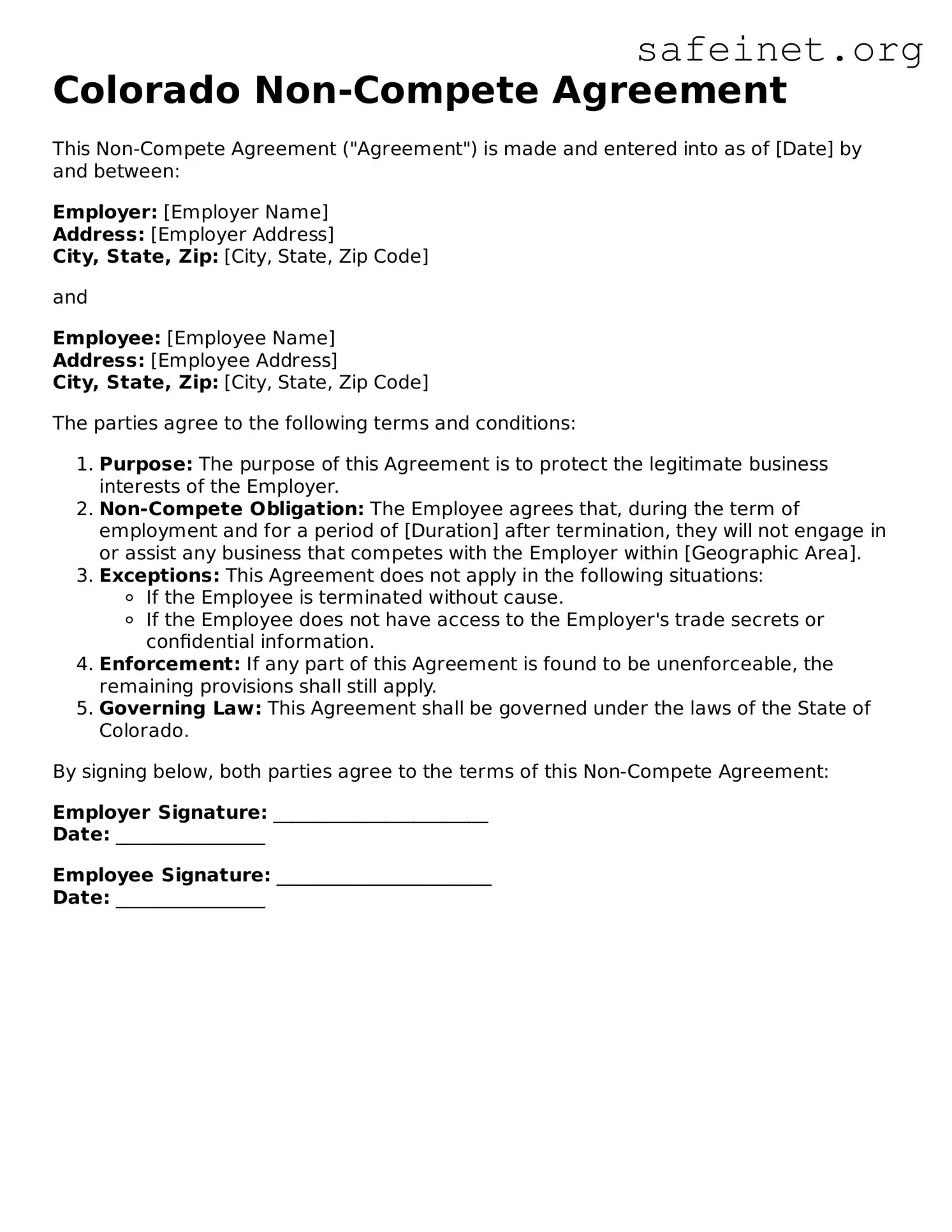What is a Non-compete Agreement in Colorado?
A Non-compete Agreement is a legal document between an employer and an employee. It restricts the employee from working with competitors or starting a competing business for a certain period after leaving the company. In Colorado, this type of agreement is generally limited to specific circumstances, primarily to protect an employer's legitimate business interests.
Are Non-compete Agreements enforceable in Colorado?
Yes, Non-compete Agreements can be enforceable in Colorado, but with important limitations. They must meet certain criteria, such as being necessary to protect the employer’s legitimate interests. Additionally, the restrictions must be reasonable in duration and geography. Colorado law has made it more challenging to enforce overly broad or unfair agreements.
How long can a Non-compete Agreement last in Colorado?
The duration of a Non-compete Agreement in Colorado typically should not exceed one year. Courts often view agreements longer than this as potentially unenforceable. It's essential to keep the timeline reasonable to increase the likelihood that the agreement will hold up in court.
Can an employee negotiate a Non-compete Agreement?
Absolutely! Employees have the right to negotiate the terms of a Non-compete Agreement. It’s important for employees to fully understand the potential impact of such an agreement before signing. Open communication can lead to more favorable terms or even a decision to revise or waive the agreement.
What can happen if someone violates a Non-compete Agreement?
If an employee breaches a Non-compete Agreement, the employer may seek legal remedies. This could include financial damages or a court order to prevent the employee from working for a competitor. However, enforcement can depend on the reasonableness and clarity of the agreement's terms.
Are there exceptions to Non-compete Agreements in Colorado?
Yes, Colorado law provides some exceptions. Non-compete Agreements cannot restrict certain professions, such as those in the medical field or those who provide services as independent contractors. Additionally, agreements concerning the sale of a business may have different rules. Consulting a qualified professional can help clarify specific situations.
